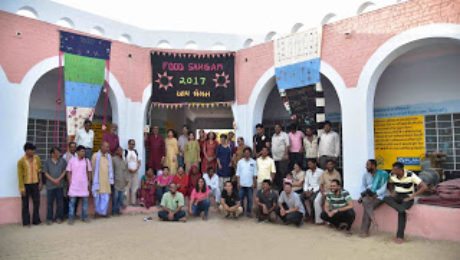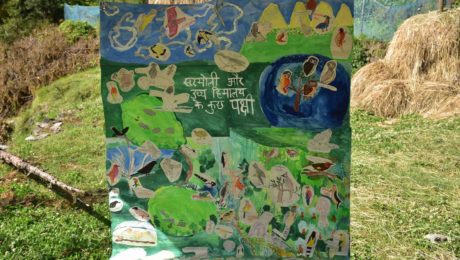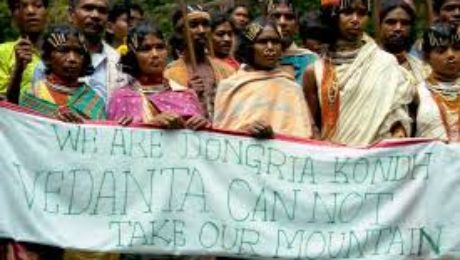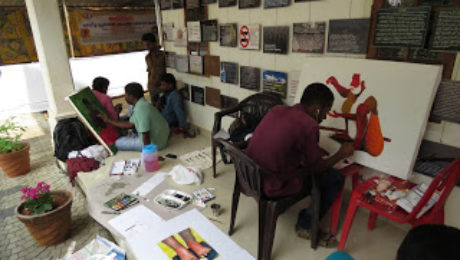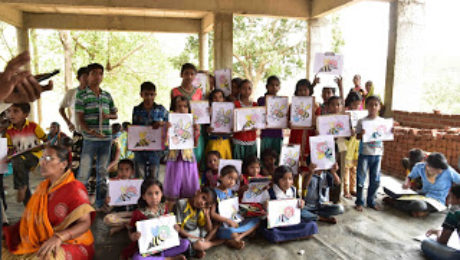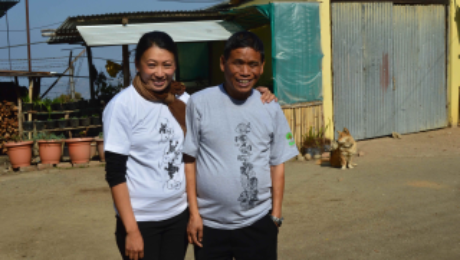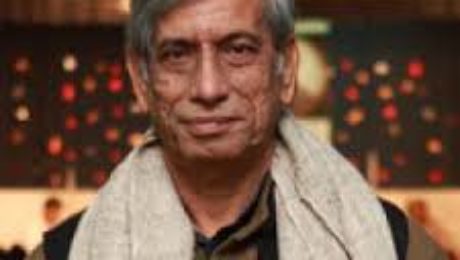Second National Food Vikalp Sangam: Bajju, Bikaner
2nd National Food Vikalp Sangam: Organised by URMUL, Banyan Roots and Kalpavriksh at Bajju (near Bikaner, Rajasthan), on 6-9 October 2017, with lots of discussions and visits on food politics, culture, diversity, etc and some great local food and singing; see https://ashishkothari51.blogspot.com/2017/10/a-confluence-of-food-alternatives.html.
- Published in Latest Post
Learning From Grassroots Transformations
Learning from Grassroots Transformations: Blogpost on a workshop KV and others organized on the 29th of September 2017 at the University of Dundee, Scotland, as one of the five T-Labs that took place prior to the Transformations Conference 2017.
- Published in Latest Post
Comments On NITI Aayog Energy Policy Draft
Civil society groups and individuals sent a detailed response to the draft Energy Policy put up by the NITI Aayog for public comments. Please Read The Comments on NITI Aayog Energy Policy drafton NITI Aayog Energy Policy draft
- Published in Latest Post
The Himal Kalasutra Bird Festival, Sarmoli Village, Above Munsiari, Uttarakhand
A four day (23-26 April 2017) event, the Himal Kalasutra Bird Festival, concluded yesterday at Sarmoli village, above Munsiari, Uttarakhand. An annual event, this was organised by Sarmoli village (in whose van panchayat forest, and that of Shankhdhura village, quite a bit of birding took place), Maati Sangathan, Himal Prakriti, Jungli School, Kalpavriksh, and Himalayan Ark. Most participants were villagers from the area and surrounds in Kumaon, some from outside the state; on the first day several schools (with kids of various ages!) also took part. In total, we saw 125 species. Some images can be viewed here at Ashish Blog
- Published in Latest Post
Petition To The President Of India Against The MHAs Report Linking Niyamgiri Suraksha Samiti To Maoists
More than 75 organisations and movements, and another 50-plus individuals have written to Shri Pranab Mukherjee, President of India, asking him to use his position to safeguard the rights and interests of the Dongria Kondh adivasis and other local communities in Niyamgiri, Odisha, against attempts by the Ministry of Home Affairs, Govt of India, to link their organization NiyamgiriSurakshaSamiti with ‘Maoists’ in its 2016-17 Annual Report.
Please read the Petition
- Published in Latest Post
Kerala Vikalp Sangam
Badhalukal 2017, the Kerala Vikalp Sangam (Alternatives Confluence) was held on 10-12 April, 2017, at Bodhigram, north of Thiruvananthipuram. Over 130 people participated, though most of them on the first day, rapidly declining to about 60 on Day 2 and 25-30 on the last day! This lack of a critical mass on all 3 days, a rather formal atmosphere set by a seminar-like first day, some key missing groups and movements, and inadequate sharing of actual experiences were weaknesses. Strengths included……..Read more on Ashish Kothari’s Blogspot
- Published in Latest Post
Honey bee festival by adivasis in Bhimashankar Sanctuary area
Images from a Honeybee Festival organised by Garbewadi (Bhorgiri) and Yelavali villages and Kalpavriksh, at Bhorgiri, in Bhimashankar Wildlife Sanctuary area, Maharashtra, on 1 April 2017. Display and sale of wild bee honey and other local produce, reading of children’s book on honeybees, brief presentations by local people and Kalpavriksh / Honey Bee Network members, and painting … lots of fun!
- Published in Latest Post
Thomas Rengma: Will Be Missed
Deeply saddened to report that Thomas Rengma, wildlifer, environmentalist, and above all a great human being from Nagaland, passed away on 27 January 2017. Another very untimely death. Thomas was with the Tourism Dept there. Kalpavriksh first encountered him about 30 years back, and several times in the last few years on our trips to the state in relation to community conservation or communitisation. Incredibly helpful, always willing to go out of his way to help us arrange things, welcoming us to his (and his partner Lucy’s) house, and much else. You will be missed, Thomas
- Published in Latest Post
Anupam Mishra: A Small Tribute
Anupam Mishra: a small tribute
Just heard that Anupam Mishra passed away this morning, 19 December 2016. Very very sad; for the social, ecological movements in India, a big loss. Anupamji quietly did some of the most amazing work on traditional water harvesting systems, and much else; in this and in his gentleness, his insistence on speaking Hindustani, his unwillingness to seek the limelight, his simple lifestyle, and his Gandhian strength of conviction, he was an inspiration for many of us. In the late 1970s and early 1980s he was a major influence on those of us just starting our interest in environmental and social issues; he encouraged us when we were starting Kalpavriksh, including readily agreeing to host a meeting of some stalwarts from movements like Chipko that we wanted to organise. I am expressing all this in very inadequate ways, for the contribution of people like Anupamji simply cannot be expressed fully in words. Rest in peace, Anupamji.
- Published in Latest Post
Conversations with nature
The four-hour drive from Rampur, a bustling large town along the Sutlej river to Jibhi, is one of the most spectacular drives that I have done of late. The area seemed refreshingly untouched by the rampant tourism that seems to have overrun many areas in Himachal and other Himalayan states. The previous day saw us in traffic-jammed Reckong Peo, luckily only for a short lunch break, and later for the night in the chaos that is Rampur.
A good part of the four-hour drive to Jibhi from Rampur is along a narrow tarred road that hugs the mountainside with the most scenic views of small mountain villages enroute. The route to Jibhi is via the 10,000 feet plus Jalori Pass, which connected Shimla and Kullu in the past.
Jibhi, like many other small villages in Himachal Pradesh, is now on the rural tourism map of the state. The state government has, over the past two years, promoted the idea of rural homestays and has helped local villagers to develop infrastructure in their homes to accommodate tourists. We stayed with Lalit and Leena, a young couple who run the Om Shanti Guest House. Lalit, a native of Jibhi, decided to try and earn a livelihood through opportunities that tourism presented. He organises treks, according to the inclinations of the groups that visit him, which range from hardcore ones in the buffer area of the Great Himalayan National Park to daylong ones around Jibhi itself.
It is the latter kind that we had to opt for, due to the fact that our arrival in Jibhi coincided with that of torrential pre-monsoon showers. We did a four-hour trek to the nearby Chehani Fort on the only clear day that we had. We climbed above Jibhi, past small villages, and then through a reserve forest with large pine, oak, rhododendron and a few chinar trees. While I scanned the area intently for a forktail (a bird found along mountain streams and one that I have not seen till date), we spotted other avian species — the magnificent Himalayan griffon, the beautiful blue-capped rockchat, the verditer flycatcher, the plumbeous redstart and the red-billed blue magpie.
The Chehani Fort itself was as fascinating as the trek that took us there. The fort comprised two tall structures made of stone and wood that stood at the end of a village.
The fort is believed to be built around 1450 by Jagat Singh, the king of Kullu. The fort is now maintained by the local community and is used as a temple to house Shringa Rishi, the local deity.
If you enjoy quiet moments like watching birds, insects or the bubbling waters of a mountain stream, if you are not seeking the pleasures of a typical upmarket resort, and if you want to trek through pristine areas, then Jibhi and the nearby villages are the places to be.
First published in Deccan Herald
- Published in Uncategorized

